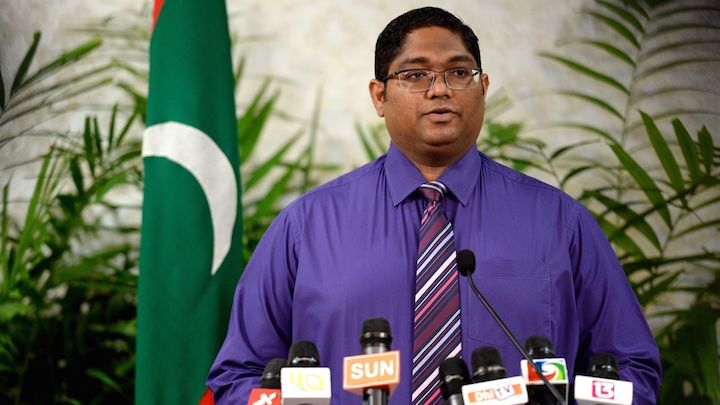Maldives rejects UN decision on detained ex defence minister
The foreign ministry said it “does not agree” with the UN’s finding that Mohamed Nazim was detained illegally.

30 Jan 2017, 09:00
The government of Maldives said Monday it “does not agree” with a United Nations judgement that found a former defence minister’s imprisonment on weapons smuggling charges illegal.
In a formal response to the finding of the UN Working Group on Arbitrary Detention, the foreign ministry insisted that Mohamed Nazim was afforded a fair trial under Maldivian laws.
It went on to dismiss “any notion of arbitrariness” arguing Nazim was not regarded as a political opponent to President Abdulla Yameen at the time of his arrest and because he was currently serving his 11-year-jail term “under house arrest at his residence with his family”.
Decrying bias by the WGAD and asserting the Maldives’ sovereignty, the foreign ministry also said that the 48-year-old retired colonel is yet to petition a Maldivian court over arbitrary detention.
Become a member
Get full access to our archive and personalise your experience.
Already a member?
Discussion
No comments yet. Be the first to share your thoughts!
No comments yet. Be the first to join the conversation!
Join the Conversation
Sign in to share your thoughts under an alias and take part in the discussion. Independent journalism thrives on open, respectful debate — your voice matters.




